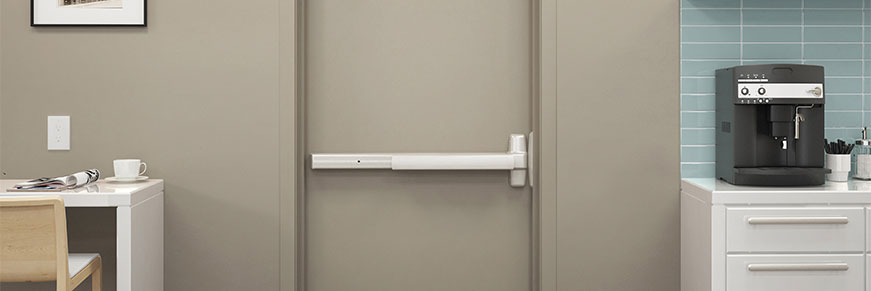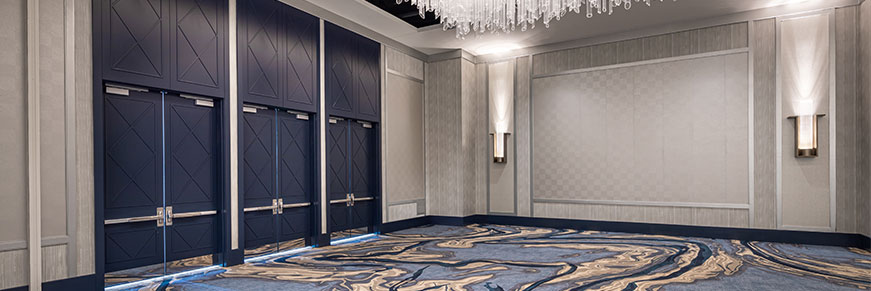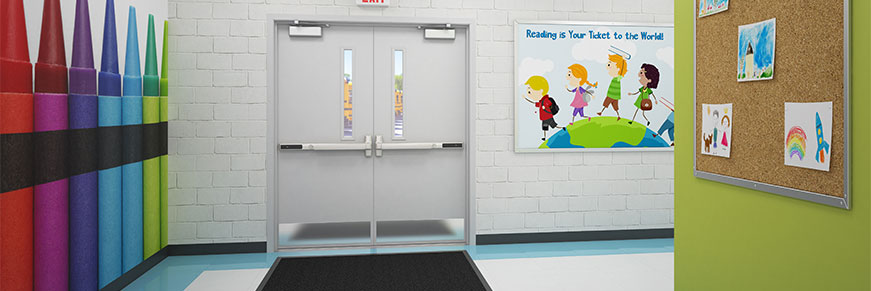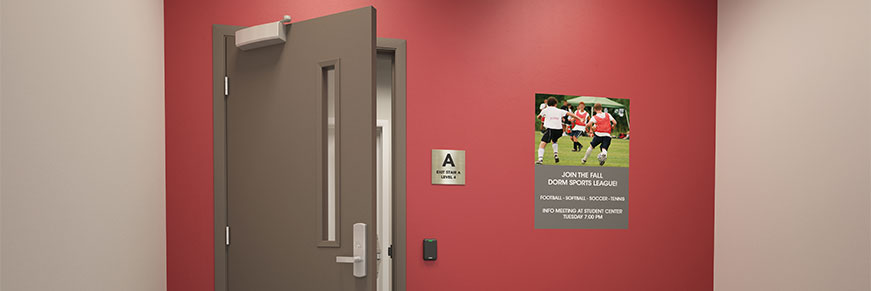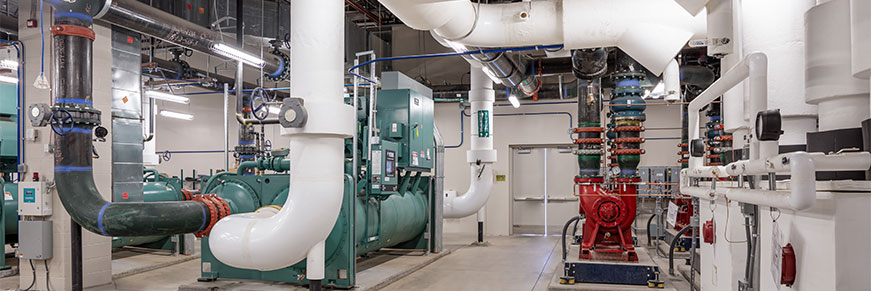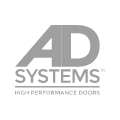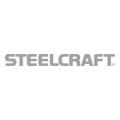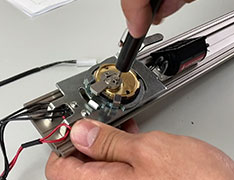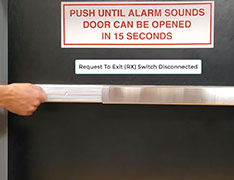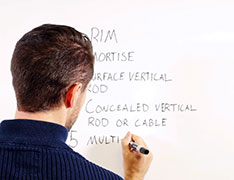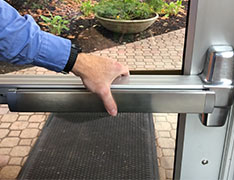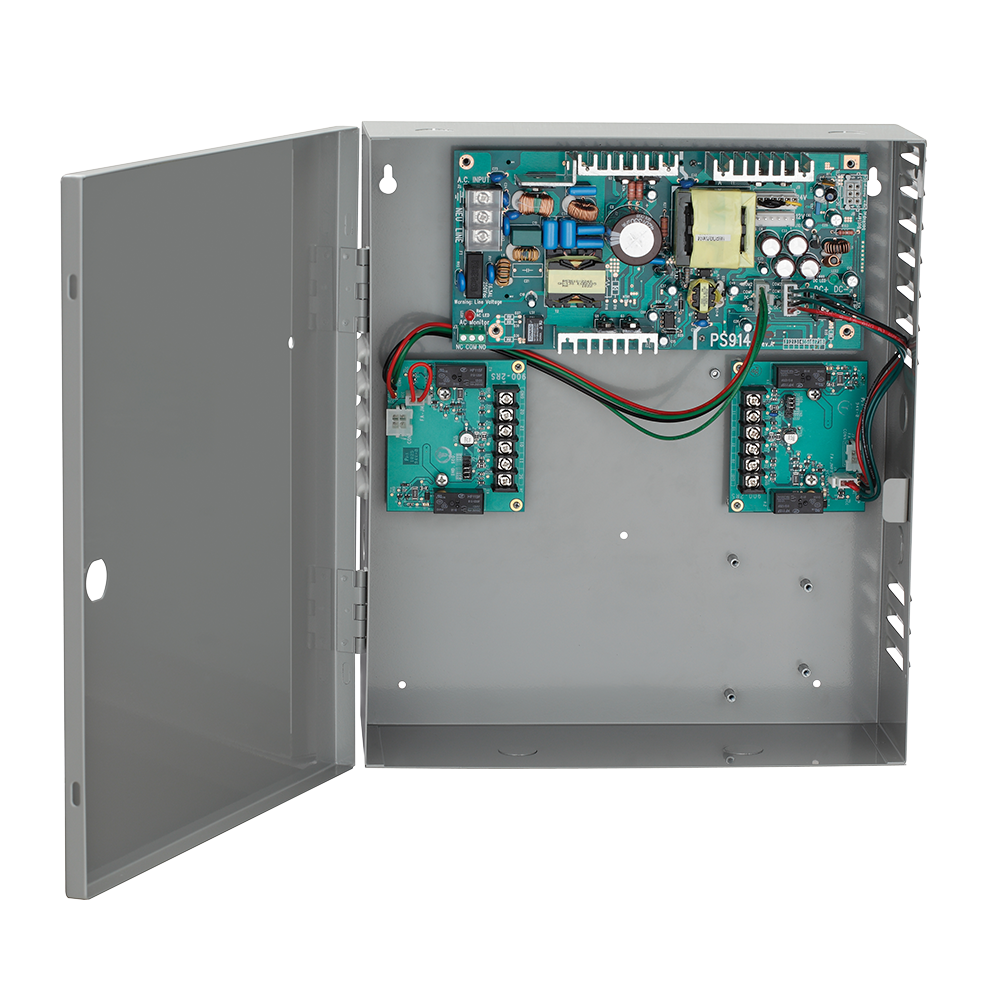It is encouraged to contact an Allegion Code Expert or AHJ to confirm the codes relevant to the configuration of any and all power supplies.
When choosing a power supply configuration, it is important to consider the following:
1. The number and types of devices that will be connected to the power supply
- Devices can include: electric strikes, electromagnetic locks, electrified mechanical locks, exit devices, automatic operators or accessories such as pushbuttons
- Each type of device has specific current demands. A power supply must be able to provide enough electricity to cover the peak draws of all connected devices—including high in-rush exit devices that pull a large current to activate
- All devices connected to a common power supply must accept the same output voltage - typically 12 VDC or 24 VDC
- If a device has an in-rush current, how long the in-rush current lasts should also be determined
2. Peak current draw of all connected devices. Calculating this and comparing it to a power supply’s amperage ensures all systems will function properly. The Guide to Selecting a Power Supply provides specific details
- PS902 - up to 2 amps
- PS904 - up to 4 amps
- PS906 - up to 6 amps
- PS914 - up to 4 amps high in-rush
3. The complete operational description of the opening
- Identify if the opening is fire rated or has special requirements such as re-entry upon fire alarm; if so a fire alarm board is required
- Determine if it requires hardware for fail-safe, fail-secure or both conditions upon loss of power or fire alarm
- How many doors?
- Is logic or sequencing required?
- Always consult your local AHJ for requirements of the opening if it is unclear
3. Types of option boards; the Guide to Selecting a Power Supply offers insights on how to choose systems and how to accommodate the boards, including distinguishing between boards
- 900-FA: Emergency interface relay integrates with automatic fire alarms to cut power during an emergency
- 900-4R: 4 independently controlled relays to power multiple devices
- 900-2RS: 2 relay EL panic device control board ensuring a time delay between the firing of outputs
- 900-4RL: 4 relay board with integrated logic that controls security interlocks, auto operators and time delays
- 900-8F: 8 individually fuse-protected outputs, to power multiple devices and provide another layer of protection and flexibility
- 900-8P: 8 positive thermal coefficient (PTC) protected outputs
4. If access control is still required in the event of a power outage; please refer to the Guide to Selecting a Power Supply to learn more
- 900-BBK: Battery backup kit (includes battery backup board and two 7A/hr. batteries) and provides up to four hours of backup power when cycled every 5 minutes at full load
Visit our Power Supplies page to review available options.
Please contact us if you need additional information or assistance.

